Changing the display language in your Windows operating system can improve usability, especially for international teams or users who are more comfortable in a different language. Whether you are setting up a server or desktop environment in Kamatera, or using Windows for everyday tasks, customizing the system language helps create a personalized and accessible experience.
Step-by-step guide
- Click on the Start menu and select Settings (gear icon).

2. Navigate to Time & Language.

3. Select the Language tab from the sidebar.

4. Under Preferred languages, click Add a language.

5. Search for your desired language (e.g., French, German, Japanese) using the search bar. Click on the language, then select Next.
Note: When you hover over the icons next to the selected language, you’ll see available features such as Text-to-speech, Speech recognition, and Handwriting.

6. Then, you will see your Preferred language, along with Optional and Required language features listed. Click Install to proceed.
Note: If you click on Choose a different language, you will be prompted to select a new preferred language from the list.
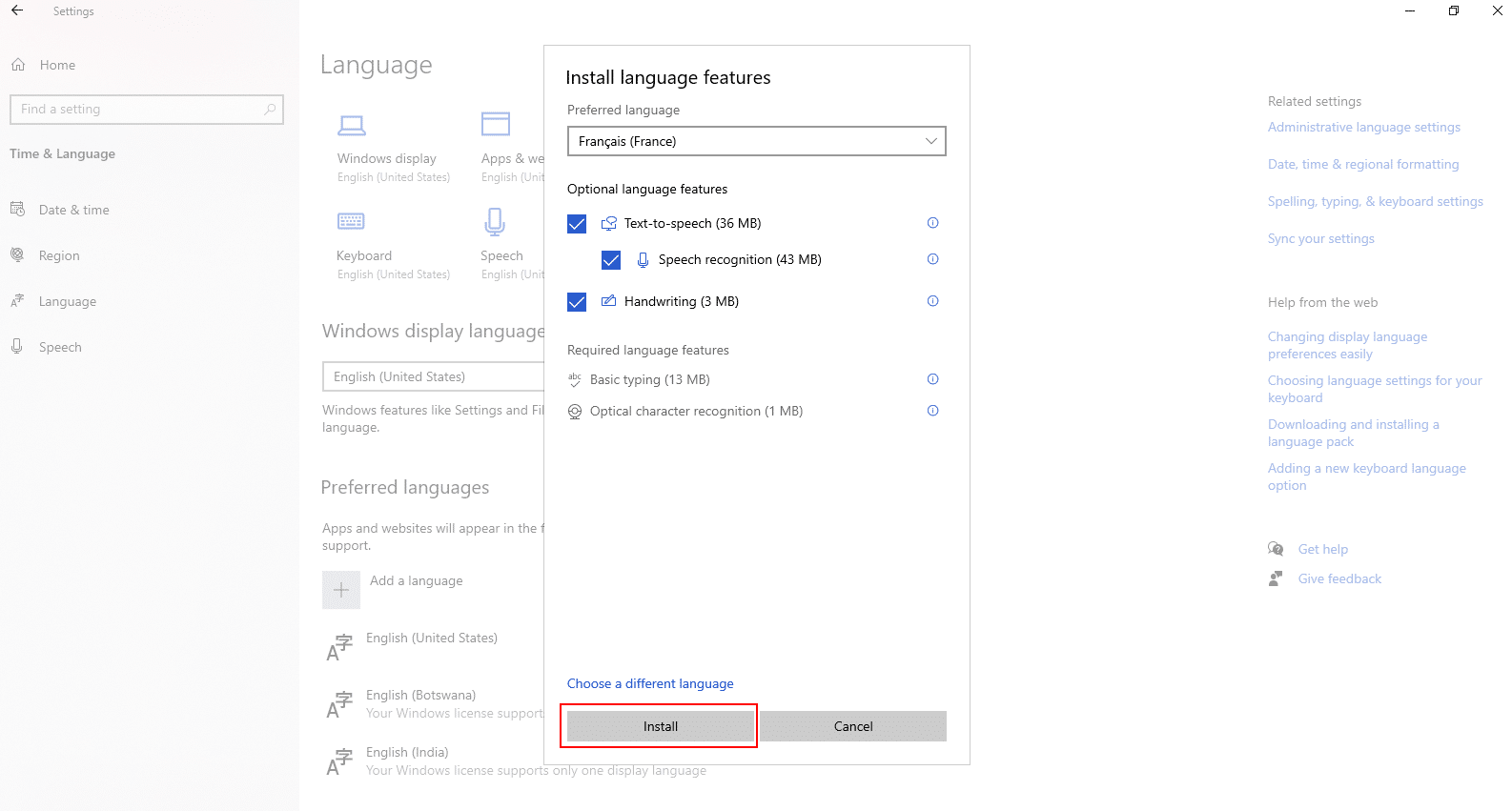
7. After installation, return to the Language settings page. From the Windows display language dropdown, select your newly installed language.
Note: You’ll be prompted to sign out and sign back in for changes to take effect.

8. Under Preferred languages, click your installed language (e.g., English) and click the Options button.
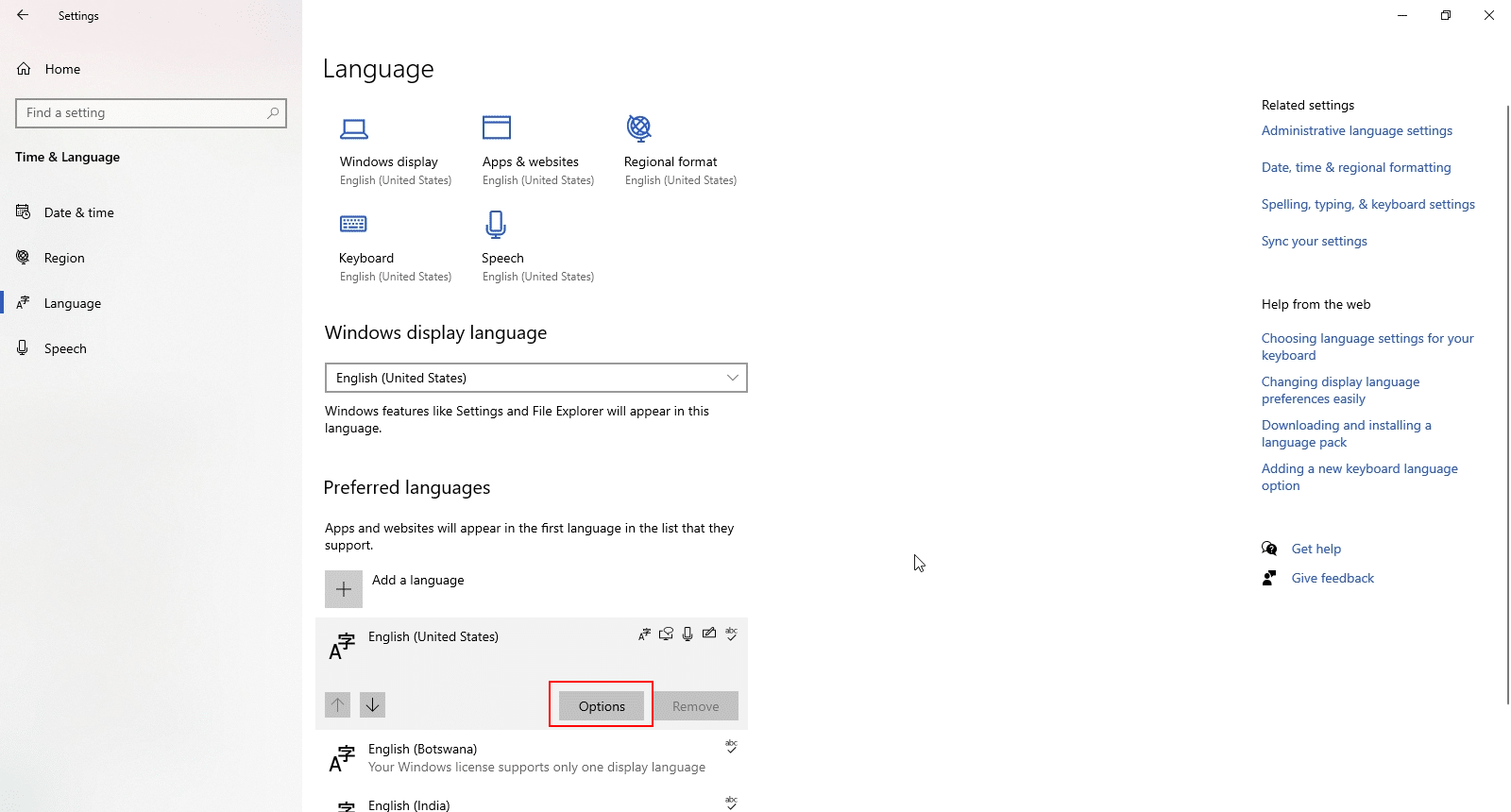
9. In the next screen, you can:
- View current layouts and you can update the layouts by clicking on Settings.
- Click on Add a keyboard layout, then you will see options like: US QWERTY, UK, Dvorak, AZERTY, etc.
- Remove layouts you don’t need.
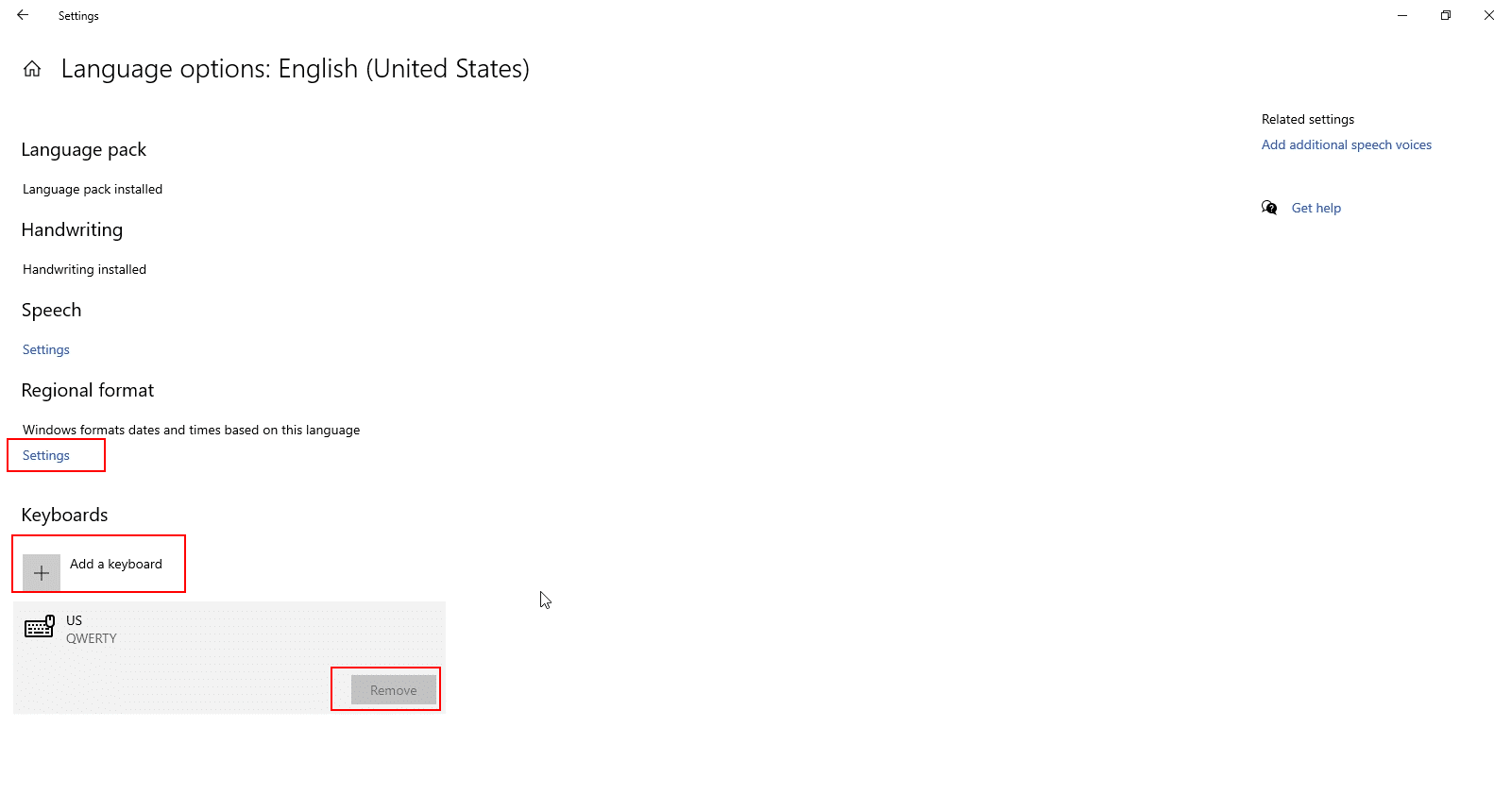
10. Again, from the Start menu, go to Settings -> Time & Language.
Select the Region tab from the left-hand menu.
If you want your regional format (e.g., date, time, currency) to match the newly selected language, click on Regional format or select Settings under the Regional format section, as shown in the above screen.
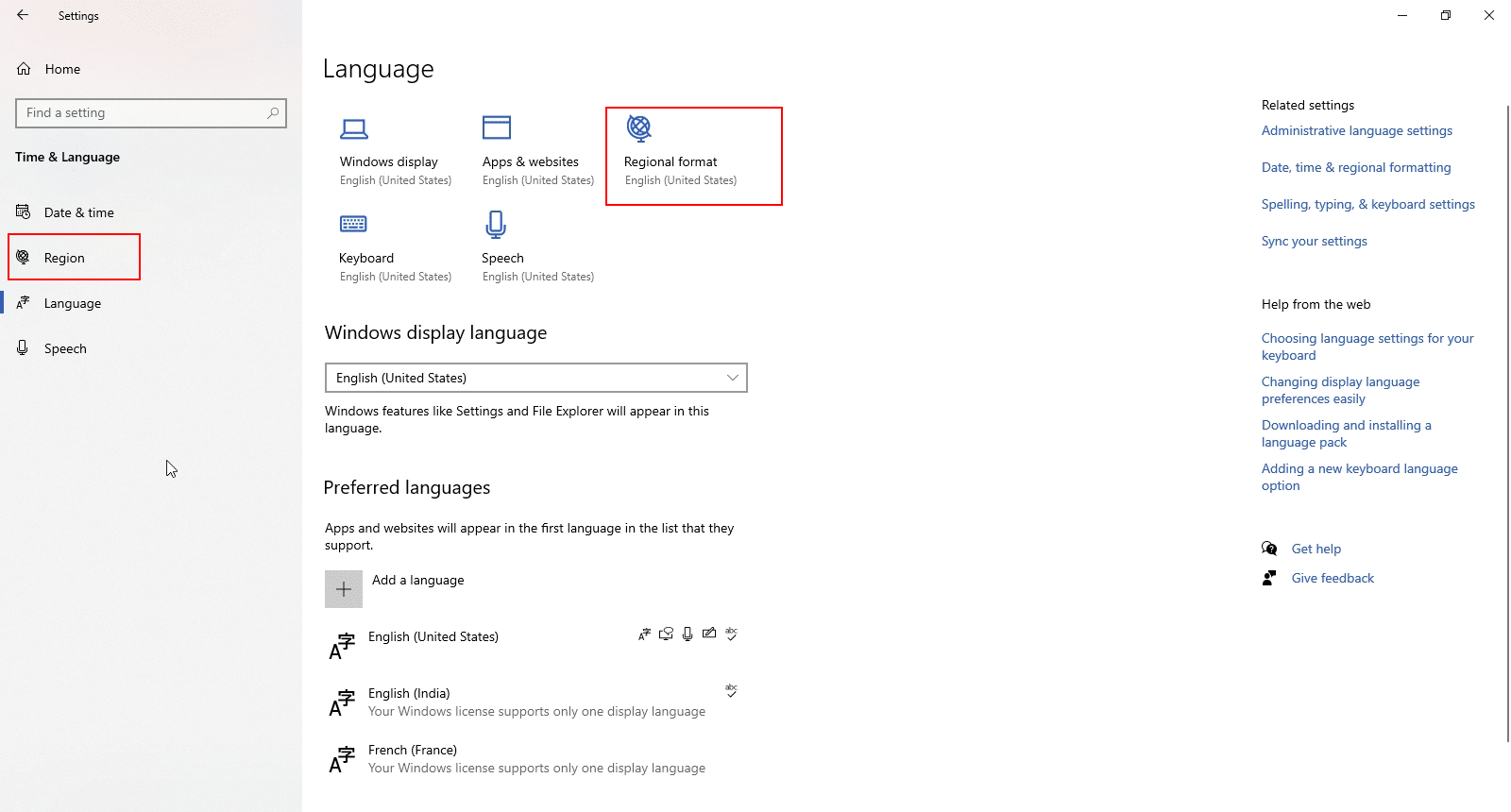
11. The new screen lets you set your country or region and choose a regional format for how dates, times, and numbers are displayed.
- Country or region: Determines local content.
- Regional format: Controls date and time styles (e.g., MM/DD/YYYY, 12-hour clock).
- You can choose a different region and format independently.
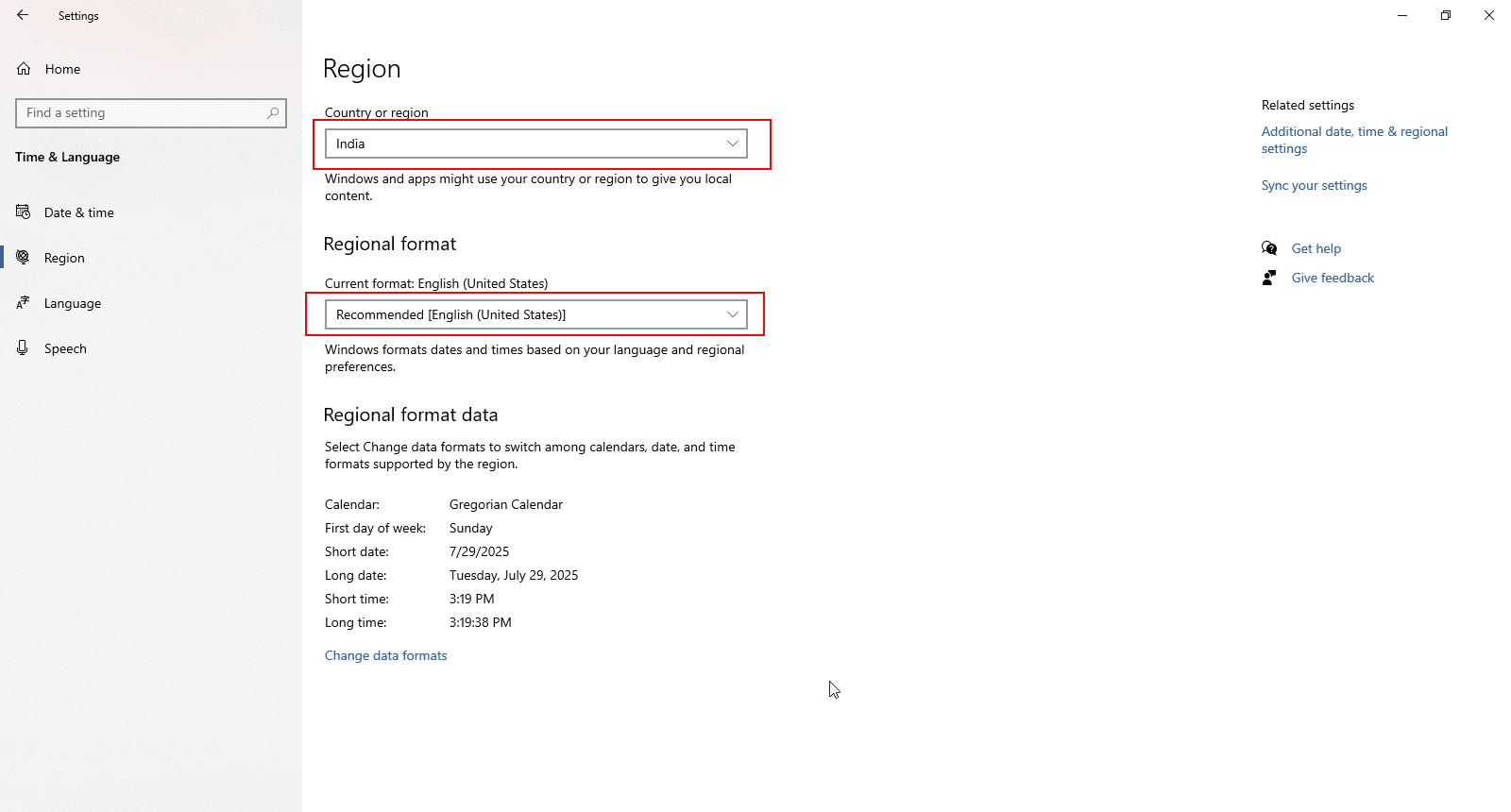
12. Again, from the Start menu, go to Settings -> Time & Language->Language (from the left-hand menu). Now, select Keyboard.
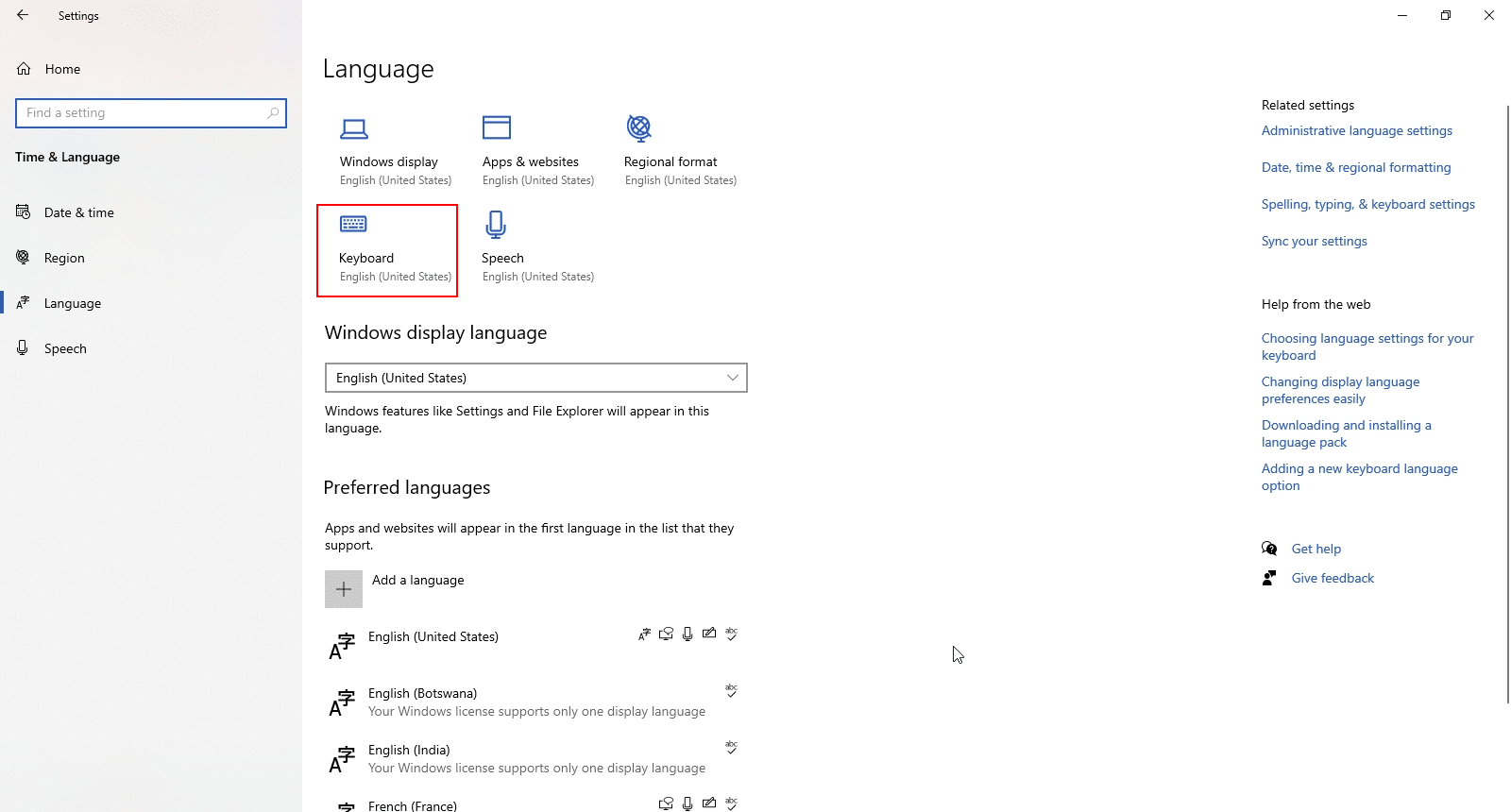
13. You can customize how Windows handles your input methods. Under Override for default input method, select Use language list (recommended) or choose your preferred language-specific keyboard layout. This ensures that your keyboard input matches your newly selected display language.

14. Restart your system or sign out and back in for the new language settings to fully apply.
And that’s it! You have now successfully changed your Windows operating system language.
